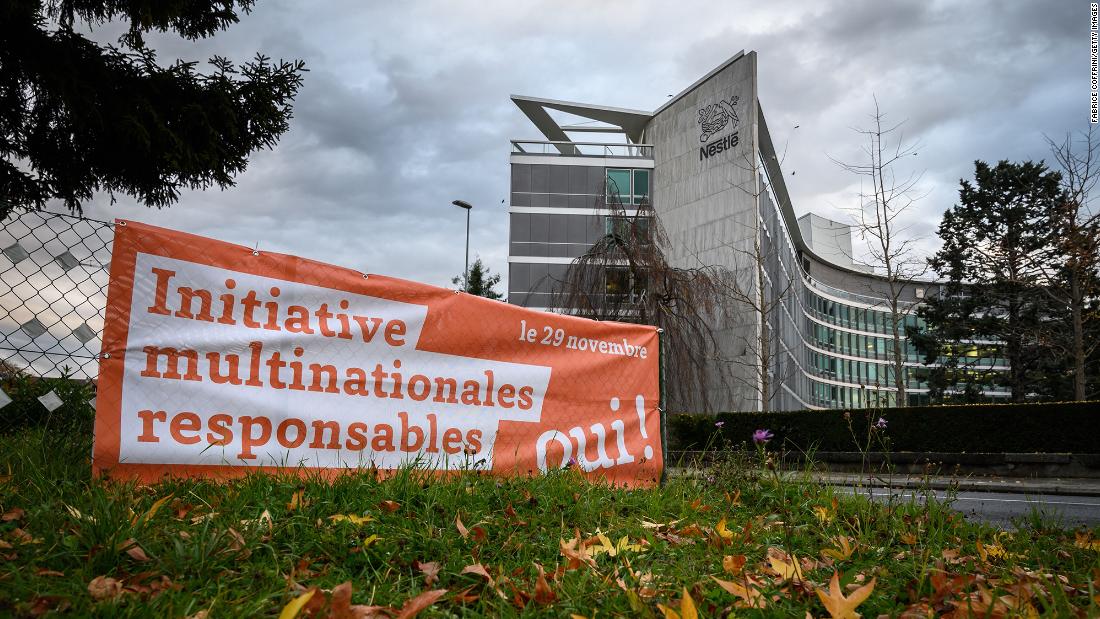
While provisional results from the government Sunday showed that more than 50% of voters approved of the Responsible Business Initiative, it did not garner support from the majority of cantons, or Swiss states. Both are necessary for a referendum in the country to pass.
The initiative split public opinion in Switzerland, a hub for consumer goods, finance and commodities trading. Supporters of the Responsible Business Initiative hung banners and signs from balconies and fences across the country. Swiss banks and other powerful businesses, meanwhile, took out expensive newspaper ads warning of dire consequences for the economy, ramping up their efforts in recent weeks.
"Accepting this initiative would prompt Swiss companies to move to other countries, leading to the loss of valuable jobs and taxable assets in Switzerland," Credit Suisse (CS) CEO Thomas Gottstein and other top executives at the bank warned a newspaper advertisement.
The Responsible Business Initiative would have mandated that Swiss firms assess the human rights and environmental practices not just of their own operations, but also of subsidiaries, suppliers and business partners, ensuring they're in line with international standards. Companies could then have been held liable in Swiss courts for violations committed by subsidiaries and suppliers they control, unless management was able to prove proper due diligence had been carried out.
The Swiss government also opposed the initiative and backed a watered-down alternative. That counterproposal will now take effect, compelling companies to increase reporting on environmental and social issues, with a particular focus on child labor and conflict minerals.
In a statement, Glencore welcomed the result of the vote Sunday. The countermeasure, a spokesperson said, is "internationally aligned and will effectively promote the protection of human rights and the environment with new transparency and due diligence measures."
The Swiss campaign comes amid a broader shift in how societies are thinking about the role and responsibilities of corporations.
France previously enacted a broad law that holds companies responsible for abuses throughout their supply chains, though the Swiss government claimed that the Responsible Business Initiative would have imposed even tougher liability on companies. The European Commission is expected to propose new rules for due diligence on human rights and the environment throughout supply chains in 2021.
In the United States, President-Elect Joe Biden has said he'll require public companies to make greater disclosures on climate risks in their supply chain. And earlier this year, the US House of Representatives passed a bill that would force publicly traded firms to audit their supply chains for forced labor in China's predominantly Muslim Xinjiang province.
"The calls for this are growing louder and louder, and there's a lot of momentum behind it," Rachel Barrett, environmental and climate change partner at global law firm Linklaters, told CNN Business last week.
https://ift.tt/3mwCLfS
Business

No comments:
Post a Comment